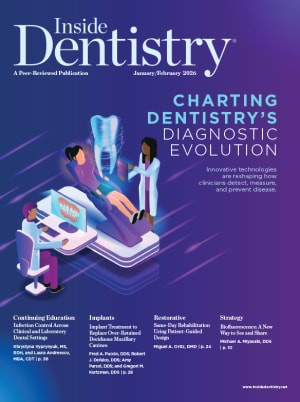In the world of dentistry, the focus is often on patient care, production goals, and treatment outcomes. Yet behind the scenes, one person quietly holds the key to long-term stability, profitability, and protection: the office manager. More than a coordinator of daily operations, the office manager is the first line of defense against financial vulnerabilities—particularly embezzlement. And the most powerful tools at their disposal? Transparency and efficient systems.
Understanding the Risk
Dental practices, by their nature, are high-trust environments. They typically operate with limited oversight, multiple income streams, and a strong sense of familiarity among team members. Unfortunately, this mix creates fertile ground for embezzlement. In fact, industry studies have estimated that nearly 6 out of 10 dental practices will experience some form of internal theft during their lifespan.
But here's the good news: an aware, empowered, and strategically minded office manager can reduce that risk dramatically—sometimes even eliminate it.
Transparency Builds Trust and Accountability
Transparency isn't just about honesty; it's about structure. When systems are visible and predictable, it's harder for manipulation to go unnoticed. Office managers who make transparency part of the culture send a clear message: “We run a professional operation with checks and balances.”
Here's how transparency works in practice:
Daily Reports Are Shared and Reviewed
Encourage daily review of collection reports, deposit slips, and adjustments—not just by one person, but with cross-checks involving a second team member or the doctor. This minimizes the opportunity for one individual to control the full financial picture.
Audit Trails Are Turned on and Used
Dental software often includes audit trail functionality, but it's rarely utilized. Office managers who ensure these logs are active—and reviewed periodically—create a system where any irregular activity is trackable and accountable.
Open Communication Is Encouraged
When office managers make it standard to discuss patient balances, payment discrepancies, or billing questions openly during team meetings, they foster a culture where no financial activity is “off-limits.”
Efficiency Closes the Gaps
If transparency is the armor, efficiency is the sword. Many embezzlement cases happen not due to malice, but because no one is watching—or because the systems in place are too disorganized to catch red flags.
Here's where leading with efficiency matters:
Standard Operating Procedures (SOPs)
An efficient office runs on clearly documented policies. This includes how payments are collected, how refunds are issued, and how adjustments are made. Office managers should ensure every financial task has a step-by-step protocol—and that it's followed consistently.
Role-Based Permissions
Many offices give too much access to too many people. Office managers should advocate for limited permissions in the practice management software—ensuring that only designated roles can enter payments, delete claims, or issue credits.
Delegation with Oversight and Shared Responsibility
Delegating tasks is essential in a busy office, but delegation should never equal detachment. Office managers should assign tasks such as claim follow-up or payment posting, but review logs and outcomes regularly to ensure the work is accurate and complete. For example, one team member may post payments while another verifies totals at the end of the day. Office managers should oversee these systems and regularly rotate roles to prevent over-familiarity with any one process.
Daily Monitoring and Closing Procedures
A strong financial system is built on daily consistency. Office managers should lead the effort to close out the day by reviewing all collections, confirming that deposits match production totals, and documenting any discrepancies. This daily accountability eliminates confusion, limits errors, and makes it extremely difficult for patterns of theft to develop.
The Office Manager as the Watchtower
When office managers take proactive control of financial systems and make transparency the norm, they become the watchtower of the practice. It's not about suspicion—it's about leadership. Offices that thrive long-term are not the ones with the most revenue, but the ones with the strongest infrastructure.
The goal isn't to catch wrongdoing. The goal is to create an environment where wrongdoing is impossible to hide—and nearly impossible to start.
Final Thought: It's a Team Effort, But Leadership Matters
Doctors are often focused on clinical excellence. Team members are focused on patient service. But the office manager bridges both worlds—and holds the power to align trust, accountability, and operational integrity. By leading with transparency and efficiency, office managers don’t just manage the office. They protect it.
Amber Weber-Gonzales began working in the dental field as a Registered Dental Hygienist in 2005. With a background in accounting and her interest in the business side of dentistry, she moved into office management roles and, ultimately, into dental consulting. In June 2022 she was appointed the head of the Proactive Services Group at Prosperident. She is a member of the Speaking Consulting Network, featuring emerging speakers in the dental industry.

